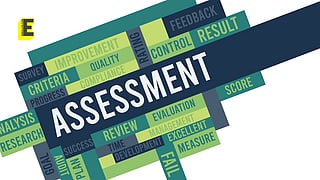
The importance of enhancing security in exam administration is paramount. Implementing biometric verification and digital safeguards for question papers is essential to ensure that access is limited to authorised individuals, with a fully trackable system in place for accountability.
Advanced surveillance, including real-time monitoring and stricter invigilation standards, will create a more leak-proof system.
The Central Bureau of Investigation (CBI) report also highlights the need for stricter enforcement and oversight to prevent future leaks.
Moving to a digital-first approach for exams, especially in urban areas, could leverage the growing penetration of internet and smart devices.
Secure online examination platforms can reduce logistical challenges, eliminate paper-based vulnerabilities, and offer real-time monitoring.
By integrating geo-fencing and time-locked access to exam papers, we can ensure that the papers are only accessible in specific locations (like exam centres) and at precise times. This prevents unauthorised access before the exam begins.
Given India's vast geography and socio-economic diversity, a tiered security model for exam centres could be implemented. High-risk areas, as identified by past breaches, can have enhanced security measures like biometric entry, stricter invigilation, and geo-fencing.
Rural or low-risk centres could employ moderate but effective security protocols, ensuring that all regions have appropriate and scalable solutions to deter malpractice.
The importance of enhancing security in exam administration is paramount. Implementing biometric verification and digital safeguards for question papers is essential to ensure that access is limited to authorised individuals, with a fully trackable system in place for accountability.
Advanced surveillance, including real-time monitoring and stricter invigilation standards, will create a more leak-proof system.
The CBI report also highlights the need for stricter enforcement and oversight to prevent future leaks.
A practical solution to reduce the impact of leaks is the randomisation of questions. By ensuring no two candidates receive the same set of questions, we can significantly lower the chances of unfair practices.
This system not only enhances the exam’s integrity but also makes it more personalised for each student, offering a fairer assessment process.
Drawing inspiration from global exams like the Graduate Management Admission Test (GMAT) and Graduate Record Examinations (GRE), India can migrate towards adaptive testing. This would mean that each student's performance on a test dynamically affects the questions they receive.
By creating multiple questions of similar difficulty from the same topic, adaptive testing reduces the chances of paper leaks or cheating. It also personalises the assessment, providing a deeper understanding of a student's grasp of the subject matter.
